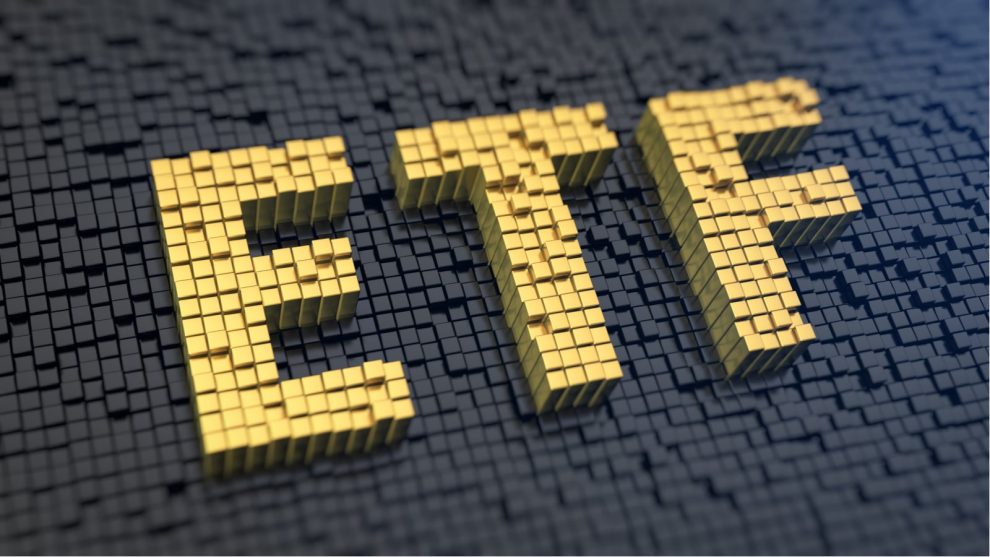
Markets are increasingly volatile, making many wish they had taken the “Sell in May and Go Away” mantra to heart. Still, though some markets are lagging, there’s a hidden opportunity: snag some of the best ETFs to buy and hold before it’s too late.
These ETFs offer semi-diversified, long-term upside by targeting specific sectors and trends. While it might be tempting to park your spare change in a generic, large-cap index fund ETF, it’s important to remember that we’re in a period of significant stock overconcentration across most indices. If just a few mega-cap stocks post poor earnings or bad news, your portfolio could suffer if you rely solely on broad-based ETF investing.
Instead, expand your horizons and diversify with the best ETFs to buy and hold forever.
SPDR Portfolio S&P 600 Small Cap ETF (SPSM)

Expense ratio: 0.03%, or $3 annually on a $10,000 investment
Though less tech-centric than its larger-cap counterpart, the SPDR Portfolio S&P 600 Small Cap ETF (NYSEARCA:SPSM) still offers exposure to some of the most innovative tech companies around, including firms like Fabrinet (NYSE:FN) and AeroVironment (NASDAQ:AVAV). Investing in this small-cap ETF for its tech exposure can help offset the risk associated with large- and mega-cap tech stocks that dominate the S&P 500 and Nasdaq-100.
The Nasdaq-100’s price-to-earnings ratio is currently 26.03, whereas SPSM boasts an average P/E ratio of about 14, highlighting the inflated valuations of large-cap tech stocks. If market trends continue, we might see investors pulling back from mega-cap tech stocks, especially if there’s even moderate earnings fallout or negative news for top performers like Nvidia (NASDAQ:NVDA).
In contrast, small-cap tech stocks remain undervalued and poised for a rebound. Using SPSM to anchor a basket of ETFs to buy and hold helps diversify a portfolio, avoiding significant overexposure while capturing small-cap tech stocks’ potential upside.
iShares U.S. Medical Devices ETF (IHI)

Expense Ratio 0.40% or $40 annually on a $10,000 investment
Choosing healthcare tech ETFs to buy and hold, such as the iShares U.S. Medical Devices ETF (NYSEARCA:IHI), is an effective way to capture the upside in both tech and healthcare sectors—two of the future’s most reliable and long-term growth prospects. Healthcare and MedTech consistently top the list of long-term investment themes to anchor your portfolio around, and IHI offers an optimal mix of established giants and emerging tech innovators. This combination makes IHI a prime vehicle to capture the unlimited upside that many smaller MedTech startups offer while resting on a bedrock of legacy medical manufacturer stability.
The rapid advancements in artificial intelligence, automation, and other healthcare innovations make selecting individual stocks with long-term growth prospects challenging, especially for those not deeply versed in the healthcare industry. It’s difficult for non-experts (and even some experts, as we’ve seen) to distinguish outright fraud like Theranos and successful long-term innovators like Intuitive Surgical (NASDAQ:ISRG). This complexity underscores why tech ETFs are often the preferred strategy for navigating specialized sectors like healthcare for many retail investors — with IHI being the best bet to capture the market among ETFs to buy and hold.
iShares Global Tech ETF (IXN)

Expense Ratio 0.41% or $41 annually on a $10,000 investment
Though attention often focuses on U.S. tech stocks, the iShares Global Tech ETF (NYSEARCA:IXN) lets investors capture global tech growth by providing access to international companies not listed on U.S. exchanges. In this way, it perfectly complements IHI’s MedTech offerings while giving investors diversified exposure to the tech-centric mega-caps that SPSM excludes.
Since January, IXN delivered a 17% return, outperforming both the S&P 500’s ****12% return and the Nasdaq-100’s 14% increase. Despite their strong performance, international tech stocks often go unnoticed, making IXN an excellent tool for geographic diversification.
Among IXN’s top holdings, you’ll find familiar tech giants like Nvidia (NASDAQ:NVDA), Microsoft (NASDAQ:MSFT), and Apple (NASDAQ:AAPL). What sets IXN apart from typical domestic tech ETFs is its inclusion of foreign-owned companies such as Samsung, Fujifilm, and Ericsson. While some of these are tradable on U.S. exchanges as ADRs and F-Shares, these unique tradable assets often come with expense ratio and liquidity concerns that IXN helps to mitigate.
On the date of publication, Jeremy Flint held no positions in the securities mentioned. The opinions expressed in this article are those of the writer, subject to the InvestorPlace.com Publishing Guidelines.




